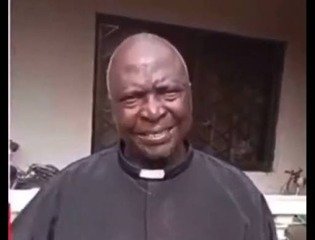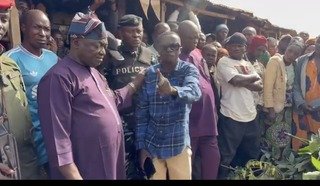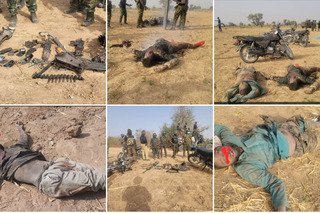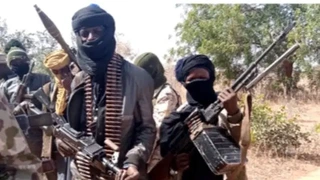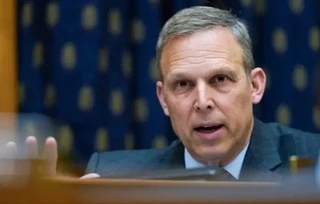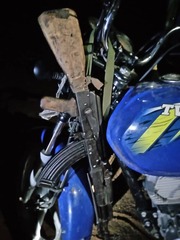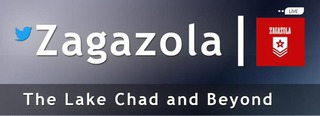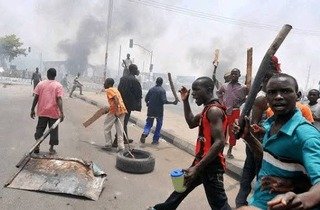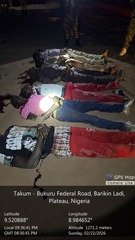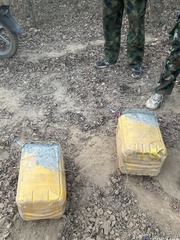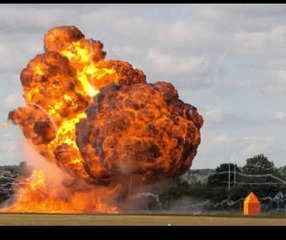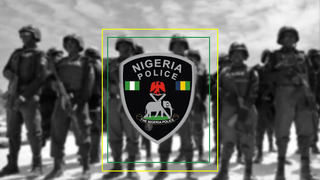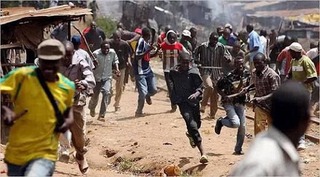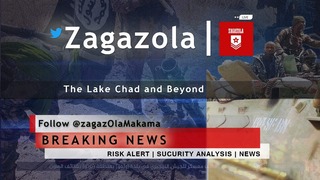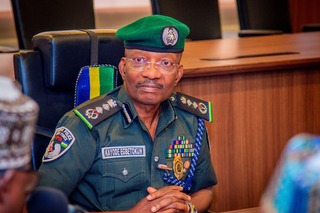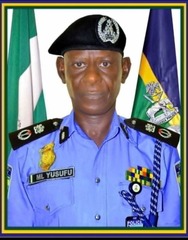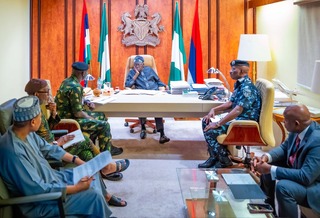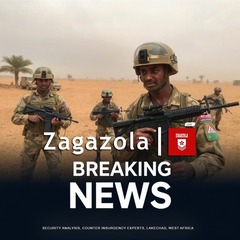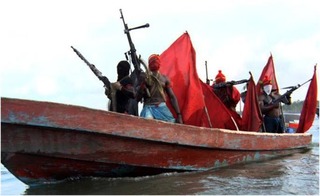FUNDING NETWORKS OF ISWAP FROM SYRIA- PAKISTAN TO NIGERIA AND THE INTERNATIONAL TERROR FINANCING WEB
By: Zagazola Makama
The evolution of Boko Haram into the Islamic State West Africa Province (ISWAP) has raised critical concerns about its financial and logistical support systems. Initially perceived as a local insurgency, the group’s allegiance to ISIS has embedded it into a sophisticated international terror network, providing access to global funding, weapons, and advanced training.
Recent allegations by U.S. Congressman Scott Perry, suggesting that USAID funds may have inadvertently supported terrorist groups, further spotlighting the need for a thorough examination of ISWAP’s financial inflows and external support from ISIS to ISWAP or Boko Haram as it was referred in the report.
ISWAP’s financial structure shifted significantly after pledging allegiance to ISIS in 2015. While the group continues to exploit local revenue sources such as extortion, kidnapping, and illicit trade, other substantial portion of its funding comes directly from ISIS leadership in Syria and Iraq, often in U.S. dollars.
Recalled that at least 96 individuals have been arrested for transferring funds on behalf of ISWAP. The list includes six Nigerians sentenced to 10 years to life in prison in 2019 for establishing a Boko Haram cell in the United Arab Emirates (UAE) to raise cash for the insurgents in Nigeria.
The administration of former President Muhammadu Buhari arrested 96 suspected sponsors of terrorism and 424 of their associates in 2021. The government also identified 123 companies and 33 Bureau De Change (BDC) operators linked with terrorism by the fraud unit of the Nigeria Financial Intelligence Unit (NFIU).
The 2020 Dubai based Boko Haram financing network was just one part of a broader system.
Other funding hubs and route include Somalia, Sudan, Libya, Cotonou, Niger and Cameroon serving as conduits for money laundering and illicit financial transactions.
Intelligence reports suggest that high ranking ISWAP leaders travel to Somalia, Syria, and Iraq for training and strategic meetings, while ISIS member constantly visited Lake Chad from time to time to engage with the ISWAP shura council.
The presence of the Pakistan and Afghanistan-linked operatives in Nigeria’s northeast is highly not entirely unexpected. The United Nations Security Council’s (UNSC) 34th report on global terror threats (July 2024) had previously warned of ISIS-K’s intent to expand its footprint beyond South and Central Asia. The report documented a meeting in Afghanistan where a ISWAP (Boko Haram) member was present, raising concerns about a growing partnership between ISIS-K and West African jihadist groups. Furthermore, the al-Furqan media network, ISIS’s main propaganda wing, has expanded to cover West Africa, the Sahel, and the Maghreb. Given this, experts predict that ISWAP’s recent drone attacks on December 23 and 26, 2024, may have been facilitated by these foreign trainers.
In Jan. 16, 2025, Maj Gen. Edward Buba, The Director Of Defence Information, has raised alarm over the increasing influx of foreign fighters into terrorist groups operating within Nigeria, which further underlined the growing complexity of the country’s security challenges, due to the presence of external elements who were deployed bolster the ranks of ISWAP insurgents.
To collaborate this claim, Zagazola sources confirmed the presence of foreign fighters linked to ISIS-Khorasan (ISIS-K) within ISWAP controlled territories. At least nine foreign operatives, including two white men and seven light skinned individuals, have been sighted in Monguno and Marte LGAs in Borno State. The fighters believed to be from Pakistan and Afghanistan were heavily armed and equipped with drones, cameras, recorders, and notepads, gathering information in ISWAP controlled areas. They spoke English and Arabic, with translations provided by an ISWAP interpreter fluent in Kanuri and Hausa.
Three weeks later, on January 3, 2025, at approximately 1944Hrs, the group returned this time with ISWAP escort units mounted on motorcycles ferrying them between locations. During this visit, they were seen inquiring about ISWAP’s taxation policies and its control over local farming, fishing, and market activities.
It was gathered that ahead of each movement, the group deployed drones to survey the target area. They spent entire days conducting reconnaissance before being escorted back to Kusuma, ISWAP’s Headquarters in Marte LGA, under heavy guard at nightfall. Further intelligence reveals that the foreign operatives reside in Kusuma, ISWAP’s command base in Marte LGA. They reportedly travel via water vessels in the early hours of the morning, touring Lake Chad Basin Authority (LCRBA) areas before returning by nightfall. Notably, during their visits, the foreign fighters took extensive photographs and notes suggesting they were either documenting ISWAP’s governance model for propaganda purposes or preparing strategic assessments for future operations.
Recent ISWAP video released by AMAQ confirmed that foreign ISIS fighters are actively training their West African counterparts in the Lake Chad.
ISWAP Leadership and Military Reshuffle in Kusuma
Coinciding with these foreign visits, ISWAP undertook a major leadership reorganization on January 4, 2025, at Kusuma HQ. in the presence of key ISWAP figures, including; Habu Hafsah, promoted from Munzir to Qa’id (Commander) of Kala Balge, Abu Suleiman, appointed Amirul Fiya of Kala Balge LGA, Abu Umar, designated Amirul Fiya of Jibillaram, Abu Haleed, assigned as Amir Rijal Amn (Head of Internal Security) and Man Modu Shashiki, appointed Amir Hisba (Chief Enforcer of Islamic Law). The reshuffle suggests a strategic strengthening of ISWAP’s leadership hierarchy, possibly to accommodate increased foreign influence and operational shifts.
The use of porous route to facilitate their movements suggests high level backing from individuals or entities capable of securing unrestricted flight clearance or movement.
ISWAP’s increasing battlefield sophistication evidenced by the use of drones, RPGs, anti-aircraft guns, and brand-new motorcycles and Hilux vehicles raises urgent questions about its supply chain. While they get some of their weapons from attacking military installations in Nigeria, Chad, Cameroon and Benin, they are getting constant supply through ungovernable spaces around Niger, Cameroon and Nigeria. Who is supplying these weapons? Who is financing their transport?
This also aligns with reports that ISWAP operatives travel to Albahrul Islam, an extremist school in Somalia, known for indoctrination and advanced military training. Captured ISWAP fighters have revealed details of specialized training hubs where militants learn bomb making, drone operations, and guerrilla warfare tactics capabilities far beyond those of a local insurgency.
U.S. Congressman’s Allegations: USAID Funding Terrorist Groups?
During a congressional hearing, U.S. Congressman Scott Perry accused the United States Agency for International Development (USAID) of funding terrorist organizations, including Boko Haram. “Your money, $697 million annually, plus the shipments of cash, funds ISIS, Al-Qaeda, Boko Haram, ISIS Khorasan, and terrorist training camps,” Perry alleged.
He further cited: USAID’s $136 million expenditure on school construction in Pakistan with zero evidence that the schools exist. USAID’s $60 million Women’s Scholarship Endowment in Afghanistan despite the Taliban banning women from public speaking. USAID’s $20 million spent on “educational TV programs”for schools that reportedly do not exist.Perry accused USAID of being a front for rogue CIA operations, funding terrorism, and engaging in financial misappropriation.
While such allegations require independent verification, they cannot be dismissed without a transparent and evidence based investigation. Those Nigerians dismissing the allegations as false and saying that Boko Haram/ISWAP are local, home grown and do not have the capacity to generate funding from any foreign organization should have a rethink.
While poverty, unemployment, poor leadership and governance and ideological manipulation, initially drove insurgents recruitment, ISWAP has now fully transitioned into a transnational terror organization and has strong foreign backing to sustained its activities.
Conclusion
Nigeria and its international partners must take these allegations seriously. If verified, they expose vulnerabilities in global aid distribution systems that terror networks exploit. Rather than reacting defensively, Nigerian should demand an independent investigation to ensure that no international funds are unintentionally benefiting ISWAP or its affiliates. Nigeria should demand an international inquiry into potential terror funding loopholes. Exposing these networks is critical to dismantling ISWAP’s financial backbone and crippling its operational capacity. Failure to act decisively will allow the terror infrastructure to continue fueling insecurity across West Africa.
Zagazola Makama is a Counter Insurgency Expert and Security Analyst in the Lake Chad Region


